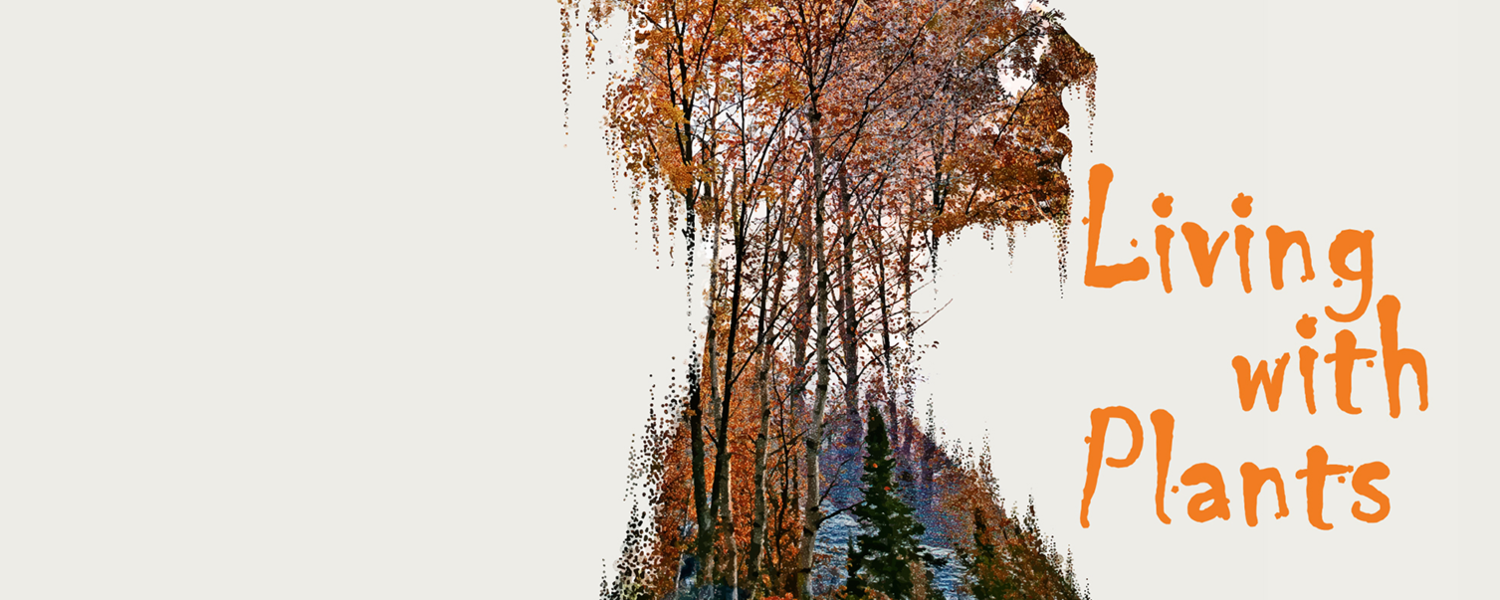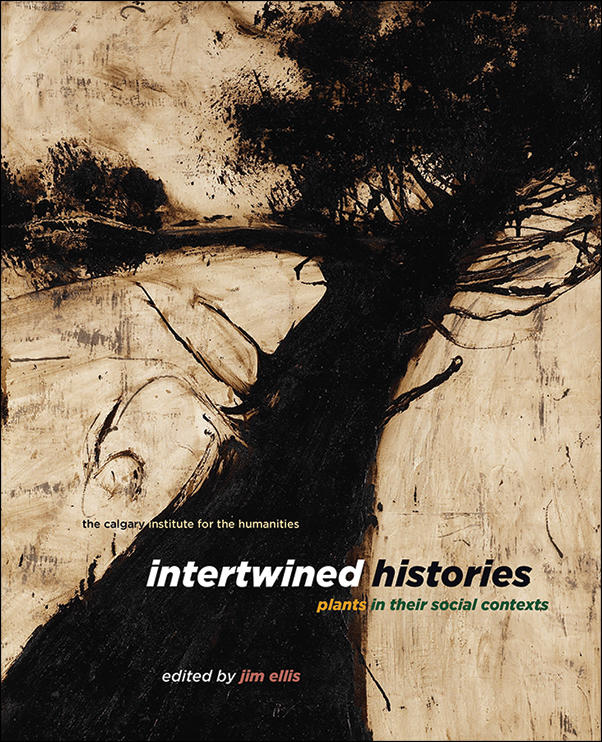
Living with Plants
The 38th Annual CIH Community Forum
Living with Plants wrapped up our three-part series of community seminars on topics in the environmental humanities. The previous two concerned urban animals (2016) and water rights (2017).
Plants were the first to colonize the planet, and they created the soil and the atmosphere that made life possible for the animals. The largest and oldest life forms currently inhabiting our earth are plants. In spite of their primacy, western cultures have traditionally regarded plants as the lowest of life forms, lacking mobility, sensation and communication.
Botanists, philosophers, historians, anthropologists and eco-critics are challenging these older views of plants by shedding new light on how plants have shaped and continue to shape life on earth, and how intimately plants are intertwined with human history. Here in the west, prairie grasslands supported indigenous cultures, the remains of ancient forests are the foundation of our current energy economy, and the forests to the west of us that filter our air and water burn with increasing ferocity each year.
More radically, recent research has argued that plants move, respond to their environment, communicate with each other, and form mutually beneficial partnerships with other species. These new studies can shift our view of plants themselves as largely inert beings, but also the way we understand the borders or boundaries of individual creatures and the systems of interdependency that bind all living things together. This seminar explored the implications of these ideas, particularly in a western Canadian context.
Intertwined Histories: Plants in Their Social Contexts
PATRICIA VIEIRA
Associate Professor of Spanish & Portuguese, Comparative Literature and Film & Media Studies at Georgetown University. Associate Research Professor at the Center for Social Studies (CES) of the University of Coimbra.
Motivated by the desire to bring together scientists and humanities scholars, Patricia Vieira recently co-edited The Language of Plants: Science, Philosophy and Literature. There is a profound gap dividing the sciences and the humanities, coupled with a mutual mistrust that impoverishes both fields. Research on plants is, by nature, cross-disciplinary and one of the goals of the book is to sow the seeds for collaboration on this subject across traditional academic boundaries. A second motivation to edit this collection has to do with plant ethics. While we tend to reduce ethics to the relations between human beings, the concept can be extended to encompass human-animal and human-plant interactions. At the root of ethics, we find the Greek word “ethos,” meaning habit or custom. What is our habitual behaviour towards plants? Is this behaviour consistent with what we know about plant life? Should our approach to plants be legally codified in plant rights, which would create a bridge between ethics and politics? Many of Vieira’s interdisciplinary studies contribute to the contemporary debate on the complex relationship between humans and non-human beings.
JAMES CAHILL
Professor of Biological Sciences at the University of Alberta and head of the Cahill Lab of Experimental Plant Ecology.
James Cahill maintains that plants do “behave” and lead anything but solitary and sedentary lives. “Twenty years ago just uttering the words behaviour and plants in the same sentence would have resulted in scientific excommunication!” Cahill insists. “I think we’ve always equated behavior, even intelligence, with movement.”
Cahill teaches at the University of Alberta, where he heads up the Cahill Lab of Experimental Plant Ecology. He has a particular fondness for trying to understand how plants forage for resources, cope with enemies, and alter competitive strategies over ecological and evolutionary timescales. A key goal of this work is to understand how these social and behavioral interactions impact patterns of biodiversity, and the functioning of natural systems. James has appeared on Nature (PBS) and The Nature of Things (CBC) in recent years, showing viewers that plants are a lot more like animals than we ever imagined.
ANDREW MATHEWS
Associate Professor of Anthrolopgy, UC Santa Cruz
Andrew Mathews’ research focuses on the culture of forestry and conservation institutions, from state bureaucracies, to NGO’s, to indigenous communities. He is committed to integrating natural and social science approaches to environmental problem solving: he previously worked for the Society for the Protection of New Hampshire Forests and for a forest genetics project in Honduras. Combining political analysis with science and technology studies, his book, Instituting Nature(MIT Press, 2011), was a history of conservation and forest management in Mexico. Mathews is currently working on the historical ecology, natural history, and climate politics of Italian forests. In the Mediterranean, and in Italy in particular, people have been shaping soils, terraces, drainage systems, and trees for several thousand years. We know that climate change is likely to bring more intense climate events. Because Mediterranean ecosystems have evolved to cope with dramatically variable climate, powerful disturbances, and intense human modification they are good places to learn about climate change.
Highlights
News
Public forum takes on human dimensions of climate change issues
Calgary Institute for the Humanities annual forum May 18 turns the focus on our relationship with plant life
Learn more about our annual Community Forums

